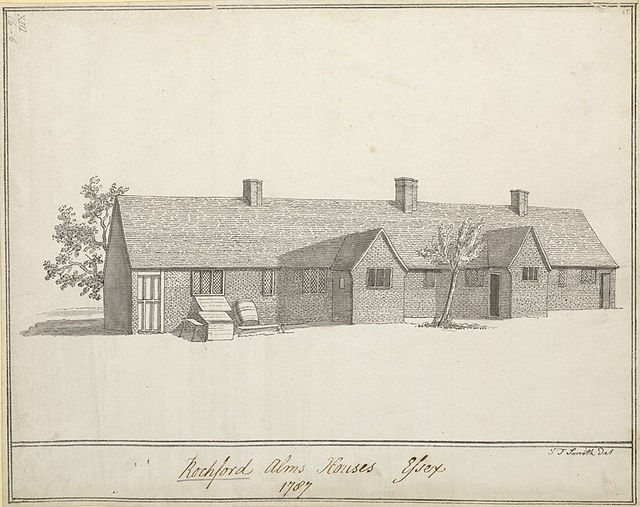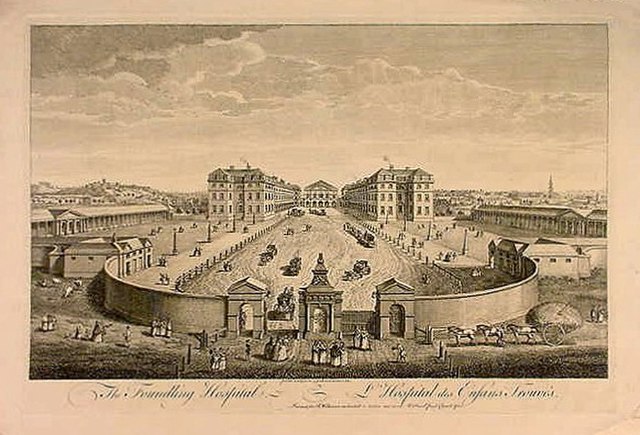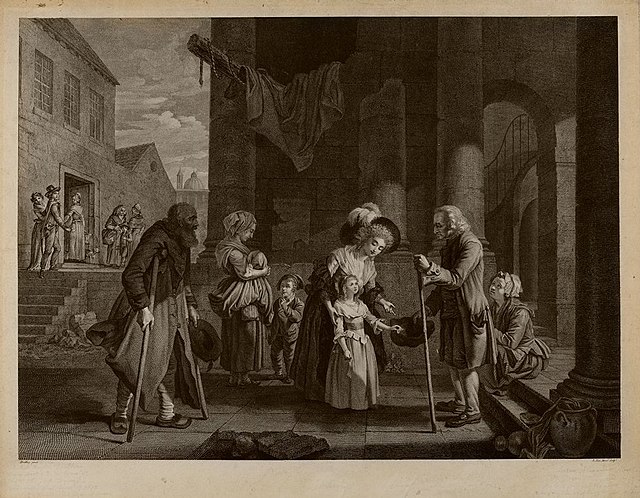An almshouse is charitable housing provided to people in a particular community, especially during the Middle Ages. They were often targeted at the poor of a locality, at those from certain forms of previous employment, or their widows, and at elderly people who could no longer pay rent, and are generally maintained by a charity or the trustees of a bequest. Almshouses were originally formed as extensions of the church system and were later adapted by local officials and authorities.
Drawing of almshouses in Rochford, England, 1787
Detail from a document connected with the foundation of Henry VII's chantry and almshouses at Westminster. The King sits in the Star Chamber and receives the Archbishop of Canterbury William Warham, the Bishop of Winchester Richard Foxe, clergymen from Westminster Abbey and St. Paul's Cathedral, and the Lord Mayor of London
Bakewell Almshouses, Derbyshire, England
Almshouses in Lier, Belgium
A charitable organization or charity is an organization whose primary objectives are philanthropy and social well-being.
American Cancer Society offices in Washington, D.C.
The second-hand shop of UFF (U-landshjälp från Folk till Folk i Finland), a non-profit and non-governmental humanitarian foundation, in Jyväskylä, Finland.
The Foundling Hospital, whose building has been demolished.
Painting by Antoine-Alexandre Morel (1765–1829) depicting charity during the Enlightenment era.








